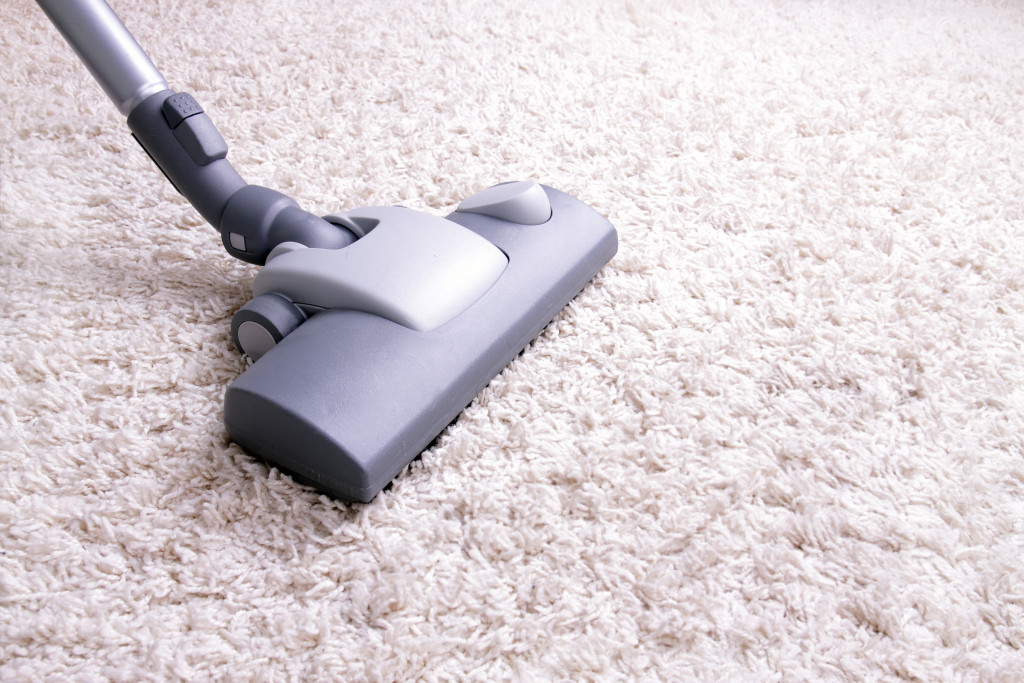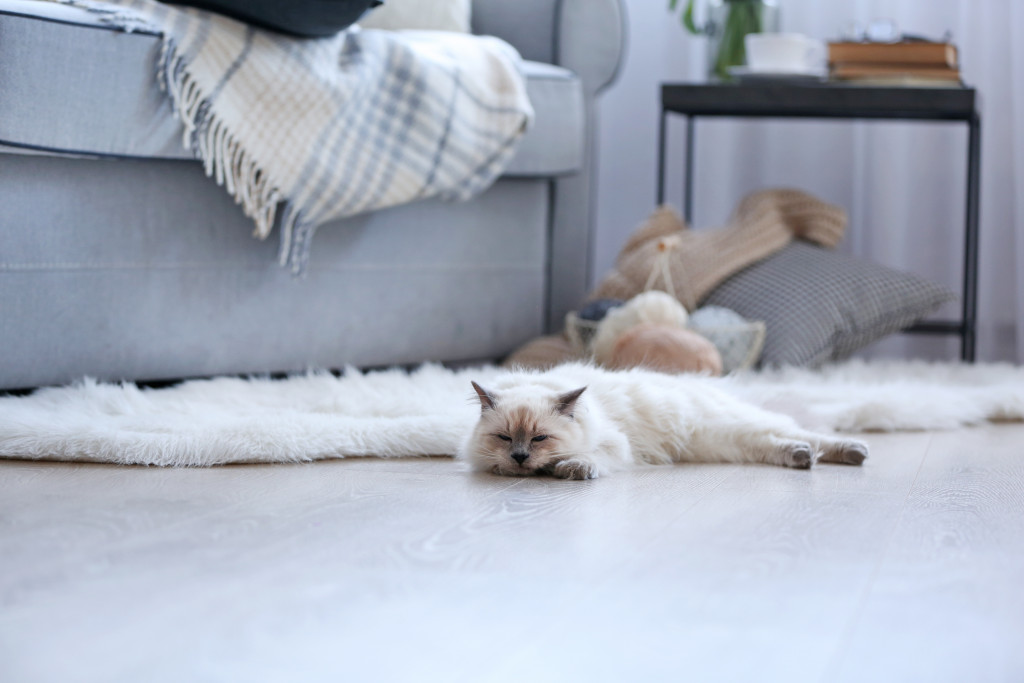- Keep home clean by vacuuming, changing bedding, wiping surfaces, and sweeping/mopping floors.
- Improve ventilation by opening windows, using fans, dehumidifiers, or air purifiers, and getting air ducts cleaned.
- Keep your home’s humidity levels between 30-50% by using dehumidifiers or air conditioners.
- Reduce pet dander by regularly grooming and bathing your pets, using a HEPA filter for vacuum cleaners, and investing in pet-safe cleaning products.
- Use natural cleaning products like vinegar and baking soda to reduce allergens.
Allergies are a common health condition that can make life miserable for sufferers. They can cause itchy eyes, sneezing, and other uncomfortable symptoms that can be difficult to manage. If you’re one of the millions of people with allergies, you know it’s essential to do everything possible to reduce your exposure to allergens. One of the best ways to do this is to focus on reducing allergens in your home. This blog post will provide a comprehensive guide on reducing allergens in your home.
1. Keep Your Home Clean:
Keeping a clean home is essential for reducing allergens. Dust mites, mold, and other irritants thrive in dirty environments. Many people with allergies find that regular cleaning helps reduce their symptoms. Here are some of the ways to keep your home clean:

a. Vacuum regularly
Regularly vacuuming can remove dust mites, pet dander, and other allergens from your home. Make sure to clean carpets, hard floors, and furniture weekly.
b. Change bedding regularly
Dust mites love to hide in sheets and pillows, so changing your bedding at least once a week is important. Wash your sheets, blankets, and pillowcases using hot water and mild detergent.
c. Wipe surfaces
Use a damp cloth to wipe down all surfaces in your home regularly. This will help remove dust and other allergens from hard surfaces like countertops, tables, and chairs.
d. Sweep and mop floors
Sweep and mop hard floors like tile, wood, or linoleum regularly. This will help remove dust, dirt, and other allergens from the floors. If possible, use a damp mop and mild cleaning solution.
2. Improve Ventilation:
Poor ventilation can make allergies worse. Make sure your home is well-ventilated by opening windows and using fans. This will help eliminate stale air and reduce the risk of mold growth. If possible, use a dehumidifier to reduce moisture in your home. Some people also find that using an air purifier helps reduce allergens in the air.
You should also look into getting your air ducts cleaned. These can accumulate dust, pet dander, and other allergens that can be circulated throughout the home. Working with professional air duct cleaning services can help remove these allergens and improve air quality. They will also be able to inspect the ducts for any leaks contributing to allergens in your home.
3. Manage Humidity Levels:
High humidity levels can create the perfect conditions for mold and mildew growth, which can aggravate allergies. Aim to keep your home’s humidity levels between 30 and 50 percent. Use a dehumidifier or air conditioner to control humidity in your home. You can also prevent mold growth by fixing leaks in your home’s pipes and roof. If you find any mold, get it cleaned as soon as possible.

4. Control Pet Dander:
Pet dander is a common allergen that can be challenging to manage if you have pets. Regularly grooming and bathing your pets can help reduce the amount of dander they produce. Invest in a high-efficiency particulate air (HEPA) filter for your vacuum cleaner to capture pet hair and dander. Try to keep pets out of your bedroom and other areas where you spend a lot of time.
You can also reduce pet dander in your home by using pet-safe cleaning products. These help remove dander and other allergens from surfaces and fabrics without irritating your pet’s skin. Try to keep your pet’s bedding and toys outside, as these can contain a lot of dander. If none of these measures work, consider talking to your veterinarian about possible medication or other treatments for your pet.
5. Use Natural Cleaning Products:
Chemical cleaning products can aggravate allergies and other health conditions. Try to use natural cleaning products like vinegar and baking soda instead. These natural products are effective in cleaning and disinfecting surfaces and are also non-toxic. Other natural products that can help reduce allergens in your home include essential oils and beeswax candles, which can help purify the air. Just be sure to use natural products that are safe for your pets.
Reducing allergens in your home is essential for managing allergies and improving overall health. Remember to keep your home clean, improve ventilation, manage humidity levels, control pet dander, and use natural cleaning products. These steps can help create a healthier home environment and reduce exposure to allergens. If you have any questions or need help reducing allergens in your home, don’t hesitate to contact an allergist or asthma specialist. With the right strategies, you can take control of your allergies and start feeling better.